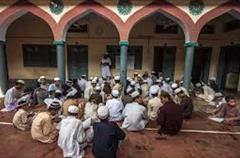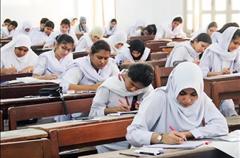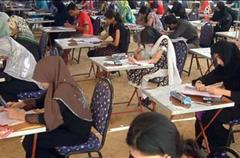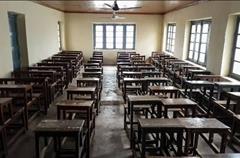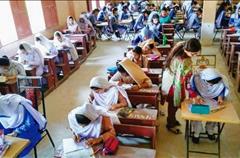The academic calendar for intermediate students in Sindh has faced a significant disruption as the annual examinations for 2025, originally slated to begin on April 28, have now been postponed. The new expected start date is May 6 or later, affecting students across Pre-Engineering, Pre-Medical, and General Science groups. Additionally, this delay is set to impact the second phase of examinations for Commerce and Arts groups, causing concern across the education sector.
This abrupt change in schedule has sparked frustration and anxiety among students, parents, and educators alike, with many questioning the efficiency and preparedness of the concerned education boards. According to education officials and reports, the delay has stemmed from multiple administrative and logistical hurdles, some of which have been persistent issues over the past several years.
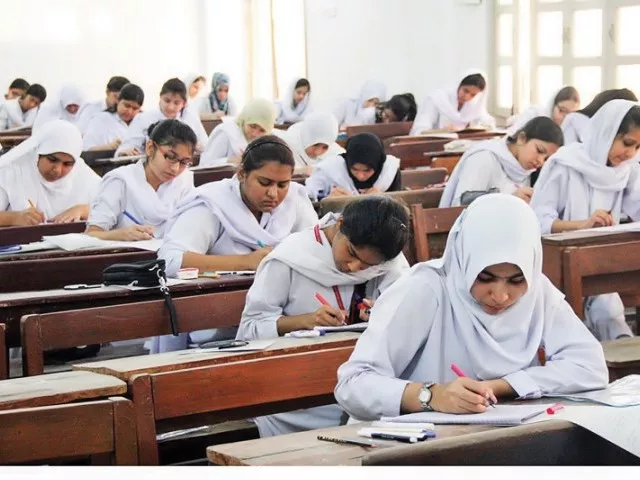
Key Reasons Behind the Delay
There are several interconnected reasons for the postponement of the intermediate exams:
1. Unavailability of Examination Centers
One of the most critical challenges is the overlapping use of examination centers for both matriculation (Secondary School Certificate) and intermediate (Higher Secondary School Certificate) exams. Currently, a large number of designated intermediate exam centers are being used for matric exams, which are set to continue in Karachi until May 2.
A senior official from the Department of Universities and Boards highlighted this issue, stating that converting matric centers for intermediate use cannot happen immediately. There needs to be a gap for logistical changes, arrangement of staff, and security protocols, all of which take time.
2. Revisions in First-Year Results
Another reason is the re-evaluation of first-year results due to the application of grace marks. This process has delayed the finalization of second-year admit cards and roll number slips. Since the progression of second-year students depends on their first-year performance, any changes to these results cause a ripple effect on the entire examination process.
Students and educational institutions are in a state of limbo, uncertain about roll numbers, exam dates, and preparation plans.
3. Leadership Vacuums in Education Boards
Perhaps the most pressing administrative issue is the absence of chairpersons at the Karachi and Hyderabad education boards. These key positions have remained vacant for over a month, stalling vital decision-making processes. Without appointed heads, exam schedules cannot be approved, and necessary preparations for examination centers cannot proceed.
According to sources within the education department, this leadership vacuum has become a significant bottleneck, affecting not just scheduling but also other logistical decisions that are crucial for smooth exam operations.
The Domino Effect on Students and Institutions
The delay in intermediate exams will likely have a domino effect on several aspects of the academic cycle:
1. Examinations During Peak Summer
With the exams now expected to be held in mid-May or later, students will be forced to appear in critical assessments during extreme summer heat. Many school and college buildings lack proper ventilation or cooling systems, which can severely impact students’ concentration, comfort, and overall performance.
For students in science streams, who often have longer exams with complex questions, this poses a health risk and academic disadvantage.
2. Delayed Results and University Admissions
The postponement also means that results will be delayed, potentially pushing university admission deadlines and new academic sessions. This lag may force universities to compress their timelines, which can compromise the quality of orientation, curriculum planning, and semester scheduling.
3. Mental Stress and Academic Uncertainty
Many students had tailored their study schedules based on the original exam dates. Constant changes not only throw these plans off course but also contribute to mental stress, anxiety, and uncertainty. For students applying to competitive universities or international programs, this delay could mean missing out on early admissions or scholarships.
The Role of the Steering Committee and Earlier Rescheduling
Interestingly, this is not the first time the intermediate exam schedule has been altered this year. Initially, the Education Department’s Steering Committee had set March 15 for matric exams and April 8 for intermediate exams. However, this plan met resistance from private school associations, who raised valid concerns about students facing difficulties taking exams during Ramadan.
In response, the committee postponed matric exams to April 8, post-Eid, and intermediate exams to April 28. While this move was appreciated for its sensitivity towards religious practices, it inadvertently tightened the exam calendar and set the stage for further delays.
Now, with matric exams extending till May 2 and unresolved administrative issues, the intermediate exams face another setback.
Stakeholder Reactions
The delay has provoked strong reactions from various stakeholders in the education sector:
-
Students have taken to social media to express their confusion and concern. Many feel that their time and efforts are not being respected by the authorities.
-
Parents worry about the toll this uncertainty is taking on their children's mental health and academic performance.
-
Teachers and Principals are calling for immediate reforms and more transparent communication from the boards. Some have suggested creating separate centers for matric and intermediate exams in the future to avoid such overlaps.
The Way Forward
This year’s challenges underscore the urgent need for structural reforms in the education examination system in Sindh. Some potential solutions include:
-
Appointment of Permanent Chairpersons: Immediate hiring and placement of experienced professionals in key leadership roles within all educational boards.
-
Long-Term Planning: The Education Department must ensure that matric and intermediate exams are scheduled with adequate gaps to avoid resource conflicts.
-
Infrastructure Development: Investing in separate centers and upgrading facilities can help reduce the dependency on shared exam venues.
-
Transparent Communication: Students and educators deserve timely, clear communication regarding any changes. An official digital portal could help streamline announcements.








.gif)








